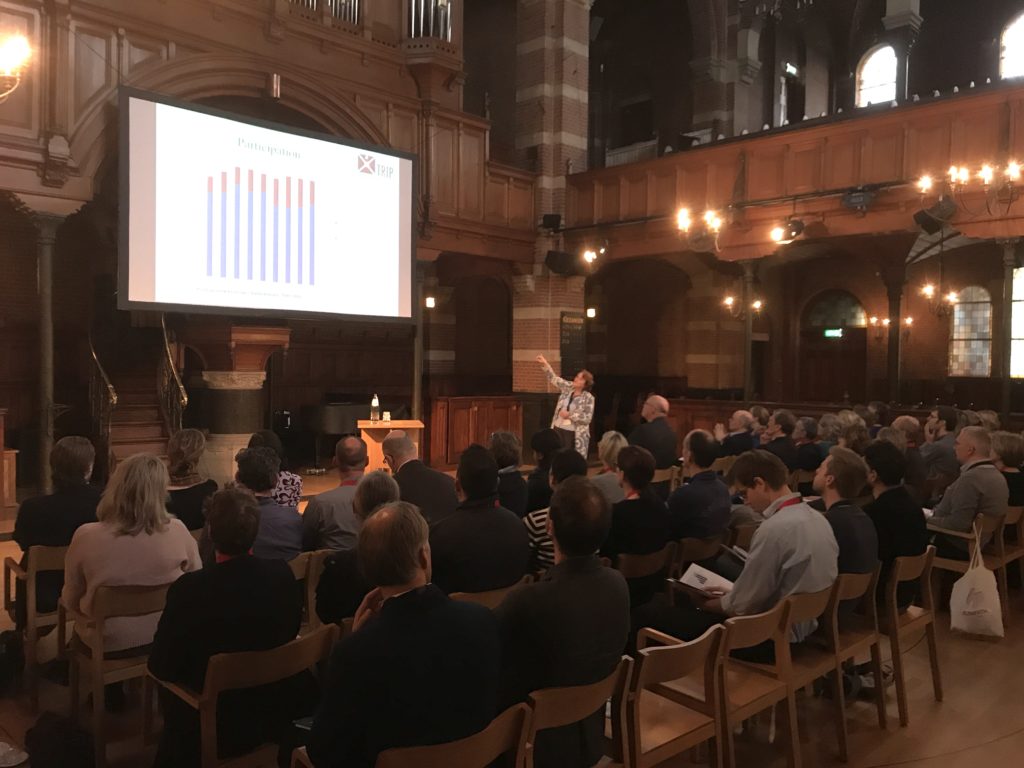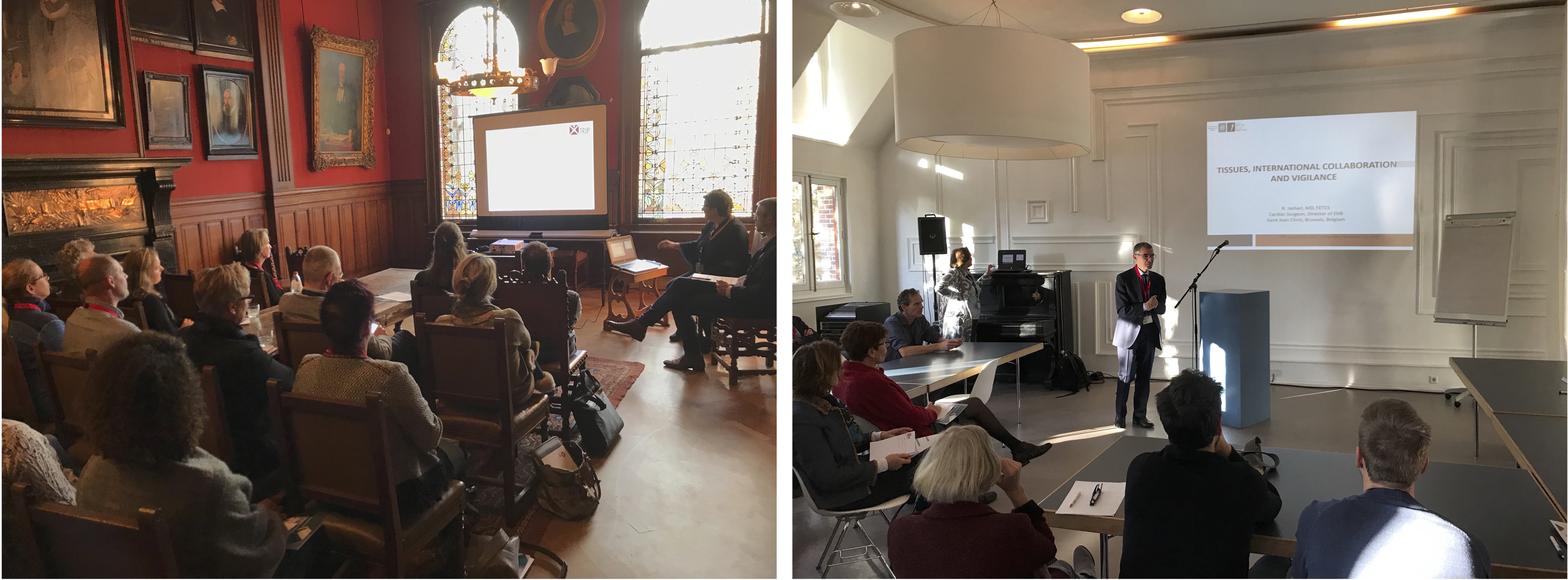Report Biovigilance Symposium 2019
On Wednesday October 16th 2019, the 12th TRIP Biovigilance Symposium took place in the City Auditorium of Leiden. In the morning this was provided by TRIP and in the afternoon the participants could join the congress of the European Association of Tissue and Cell Banks (EATCB). Because of the many international participants, the official language was English.
Below you will find the report of this day. You can view the presentations by clicking on the name of the speaker.
Disclaimer: All presentations are only available for inspection and may not be used without the speaker’s or TRIP’s permission.
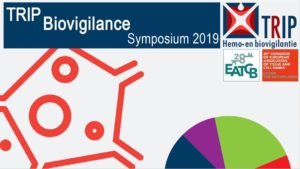 Arlinke Bokhorst, director of TRIP, opened this day by welcoming everyone and giving a short introduction about the city of Leiden and about TRIP and the Biovigilance in 2018.
Arlinke Bokhorst, director of TRIP, opened this day by welcoming everyone and giving a short introduction about the city of Leiden and about TRIP and the Biovigilance in 2018.
Ans van Pelt, Professor of Translational Reproductive Biology at the AMC-UvA in Amsterdam, then gave a presentation on obtaining, processing and storing semen and testicular tissue. She talked about the difference between female and male gonads and the differences in the development of the gametes. There was also extensive discussion about fertility preservation of sperm or testicular tissue.
Then Ina Beerendonk, gynaecologist at the Radboud University Medical Center in Nijmegen, spoke about cryopreservation and transplantation of ovarian tissue: the state of affairs in the Netherlands and worldwide. She talked about the indications, storage and transplants, results and risks related to the transplantation of ovarian tissues (reintroduction of metastases), amon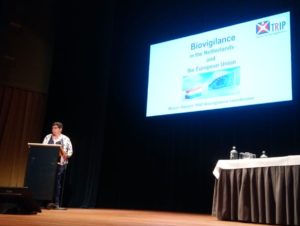 g other things.
g other things.
After this interesting start and a short coffee break, Marjan Happel, Biovigilance Coordinator at TRIP, gave a presentation on Biovigilance in the Netherlands and the European Union. An EU-survey was conducted to collect data, report adverse events and reactions and report these data to the European Commission for Biovigilance. The instructive results of this survey are explained in this presentation.
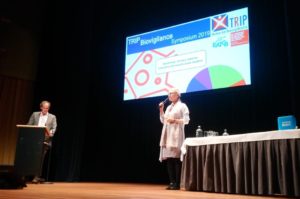 This was followed by an interactive workshop on Serious Adverse Reactions and Events, led by Jo Wiersum, National Coordinator at TRIP, and built up as a quiz. During this workshop, various cases were discussed and presented by: Sjors van Kats on bone products, Anne Cathrine Bollerup (DK) on a genetic disorder in a child conceived with donor sperm and Judith Lie discussed a case on peripheral blood stem cells. During this workshop the audience could answer questions with Yes and No using red and green cards and explain their answers using the ‘catch box’ microphone – which resulted in some hilarious moments.
This was followed by an interactive workshop on Serious Adverse Reactions and Events, led by Jo Wiersum, National Coordinator at TRIP, and built up as a quiz. During this workshop, various cases were discussed and presented by: Sjors van Kats on bone products, Anne Cathrine Bollerup (DK) on a genetic disorder in a child conceived with donor sperm and Judith Lie discussed a case on peripheral blood stem cells. During this workshop the audience could answer questions with Yes and No using red and green cards and explain their answers using the ‘catch box’ microphone – which resulted in some hilarious moments.
As a follow-up to this exciting workshop, it was time for an extensive lunch break in the Breezaal of the City Auditorium.
After lunch the participants of the TRIP Biovigilance Symposium could experience the opening of the annual conference of the EATCB. Presentations on 3D bone printing, heart reconstruction and corneal cell culture were given there. After a short break, presentations were given about the treatment of burns with cultured autologous skin, the transplantation of limbal stem cells and the first bilateral hand transplant in the Netherlands.
After that the congress was officially opened by the Mayor of Leiden and a pleasant welcome drink followed.
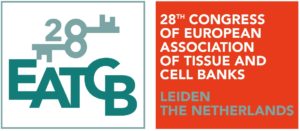 The EATCB congress was continued the following days. On Thursday 17 October Annemiek Rijneveld (member of TRIP’s Biovigilance Advisory Chamber) gave a presentation on the safety of transplanted cornea based on TRIP data.
The EATCB congress was continued the following days. On Thursday 17 October Annemiek Rijneveld (member of TRIP’s Biovigilance Advisory Chamber) gave a presentation on the safety of transplanted cornea based on TRIP data.
Bureau TRIP would like to thank all participants and speakers for their attendance and contribution and the organisation of the EATCB congress for the opportunity to join their congress. We look back on a very successful day.
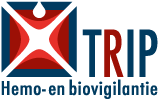

 g other things.
g other things. This was followed by an interactive workshop on Serious Adverse Reactions and Events, led by Jo Wiersum, National Coordinator at TRIP, and built up as a quiz. During this workshop, various cases were discussed and presented by: Sjors van Kats on bone products, Anne Cathrine Bollerup (DK) on a genetic disorder in a child conceived with donor sperm and Judith Lie discussed a case on peripheral blood stem cells. During this workshop the audience could answer questions with Yes and No using red and green cards and explain their answers using the ‘catch box’ microphone – which resulted in some hilarious moments.
This was followed by an interactive workshop on Serious Adverse Reactions and Events, led by Jo Wiersum, National Coordinator at TRIP, and built up as a quiz. During this workshop, various cases were discussed and presented by: Sjors van Kats on bone products, Anne Cathrine Bollerup (DK) on a genetic disorder in a child conceived with donor sperm and Judith Lie discussed a case on peripheral blood stem cells. During this workshop the audience could answer questions with Yes and No using red and green cards and explain their answers using the ‘catch box’ microphone – which resulted in some hilarious moments. The EATCB congress was continued the following days. On Thursday 17 October Annemiek Rijneveld (member of TRIP’s Biovigilance Advisory Chamber) gave a presentation on the safety of transplanted cornea based on TRIP data.
The EATCB congress was continued the following days. On Thursday 17 October Annemiek Rijneveld (member of TRIP’s Biovigilance Advisory Chamber) gave a presentation on the safety of transplanted cornea based on TRIP data. On Wednesday November 28th 2018, the 11th TRIP Biovigilance Symposium toke place in Maastricht UMC+.
On Wednesday November 28th 2018, the 11th TRIP Biovigilance Symposium toke place in Maastricht UMC+. 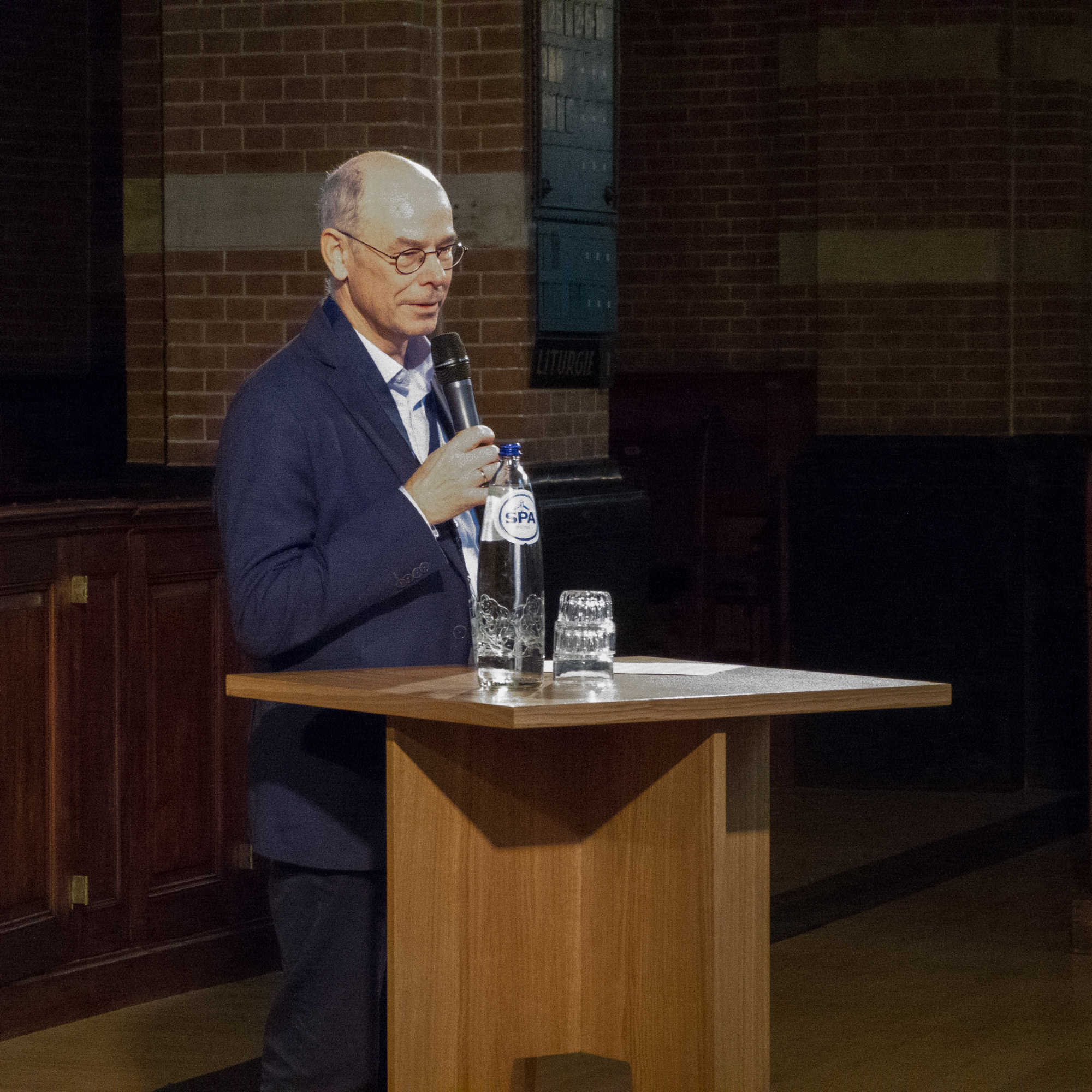 Chairman Pim Janssens (Chairman, TRIP Advieskamer Biovigilantie) opened the day with a welcome speech and was followed by
Chairman Pim Janssens (Chairman, TRIP Advieskamer Biovigilantie) opened the day with a welcome speech and was followed by 